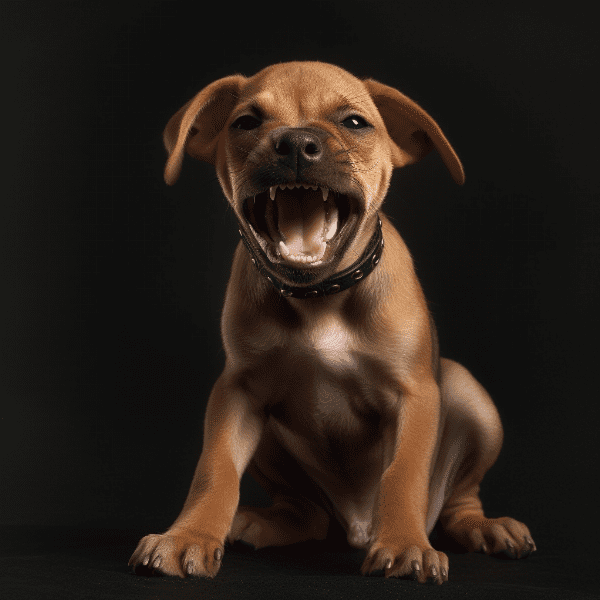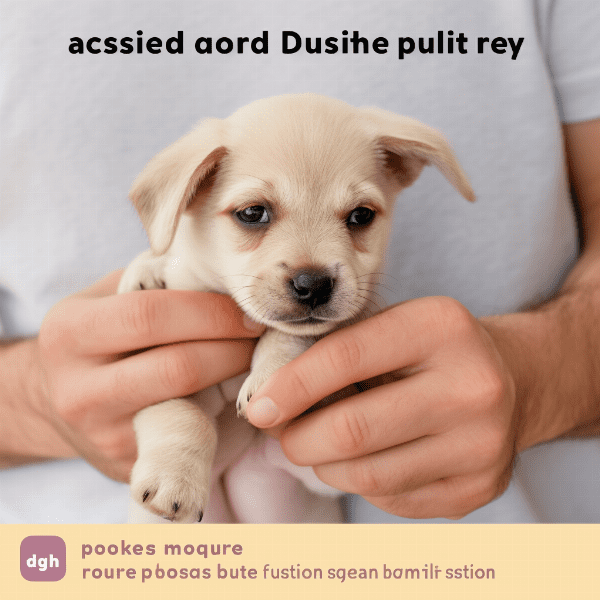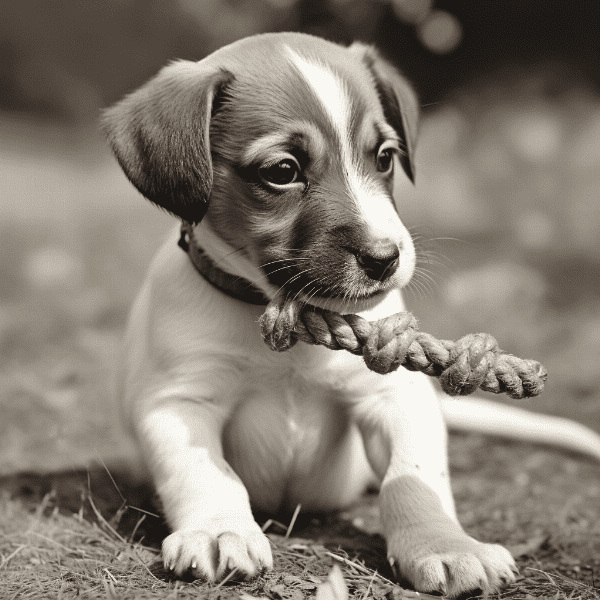Table of Contents
- Understanding Food Aggression in Puppies
- Early Signs of Food Aggression to Watch For
- Training Techniques for Preventing Food Aggression
- Feeding Strategies to Reduce Food-Related Tension
- Avoiding Common Mistakes When Dealing with Food Aggression
- Seeking Professional Help for Serious Cases
- Incorporating Positive Reinforcement in Puppy Training
- Managing Multi-Dog Households with Food Aggression
- The Importance of Consistency in Preventing Food Aggression
- Building Trust with Your Puppy to Overcome Food-Related Anxiety.
Understanding Food Aggression in Puppies
Food aggression in puppies is a common behavioral issue that arises when dogs become territorial or possessive over their food. This type of aggression can be dangerous, especially if it goes unchecked, as it can escalate to more severe forms of aggression over time. Understanding the underlying causes of food aggression in puppies is essential in preventing this problem from developing or becoming worse.
The Root Causes of Food Aggression in Puppies
Puppies may become food aggressive due to several reasons, such as:
- Lack of Socialization: Puppies that have not been exposed to different people, animals, or environments may develop food aggression as a form of anxiety or insecurity.
- Competition for Resources: When puppies live in multi-dog households or are in environments where food is scarce, they may become food aggressive to protect their share of resources.
- Lack of Training: Puppies that have not been trained to understand that their owners are in control of their food may become food aggressive, especially if they perceive themselves as the pack leader.
The Signs of Food Aggression in Puppies
Food aggression in puppies can manifest in several ways, including:
- Growling: Puppies may growl to warn others away from their food.
- Snapping: Puppies may snap at others when they get too close to their food.
- Biting: In severe cases, puppies may bite when they feel threatened or their food is in danger of being taken away.
The Importance of Addressing Food Aggression in Puppies
Addressing food aggression in puppies is essential in preventing the problem from escalating. Unchecked food aggression can lead to more severe forms of aggression, causing the puppy to become dangerous to people and other animals. It can also lead to stress, anxiety, and a decreased quality of life for the puppy.
To prevent food aggression in puppies, it is crucial to understand its root causes, recognize the signs of food aggression, and take steps to address it promptly.
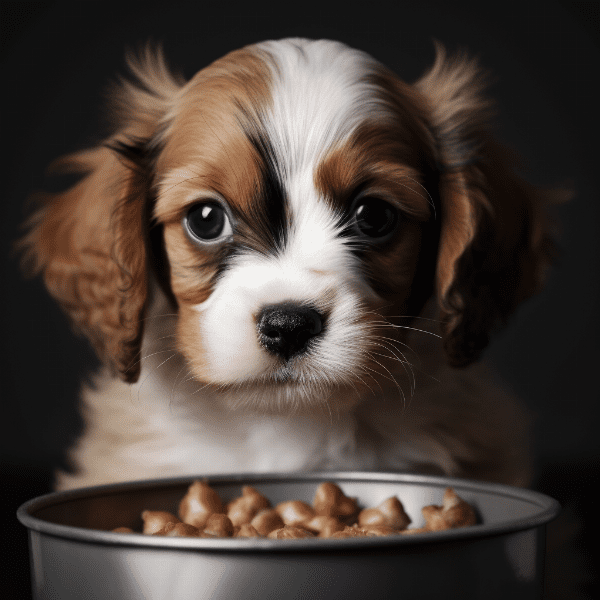
Early Signs of Food Aggression to Watch For
Recognizing the early signs of food aggression in puppies is crucial in addressing the issue before it becomes a severe problem. Here are some early signs of food aggression to watch for:
Guarding Behavior
One of the most common early signs of food aggression in puppies is guarding behavior. This behavior may involve the puppy standing over its food bowl, growling or barking when approached, or displaying other aggressive behavior when someone tries to take away its food.
Stiff Body Language
Puppies that are becoming food aggressive may display stiff body language, such as a tense body, raised hackles, or a curled lip. These physical cues indicate that the puppy is feeling threatened or defensive and may be about to lash out.
Eating Too Quickly
Puppies that are food aggressive may eat their food too quickly, as they are afraid that someone will take it away from them. This behavior can lead to digestive problems or even choking.
Unwillingness to Share
Puppies that are becoming food aggressive may become unwilling to share their food with other dogs or people. They may growl, bark, or snap at anyone who tries to take away their food or get too close.
Aggression Around Food
Puppies that are becoming food aggressive may display aggression around food even if they are not currently eating. For example, they may growl or bark when someone enters the room where their food is kept or when someone approaches their food bowl, even if there is no food in it.
Recognizing these early signs of food aggression in puppies is crucial in preventing the issue from escalating. If you notice any of these signs in your puppy, it is essential to take steps to address the issue promptly.
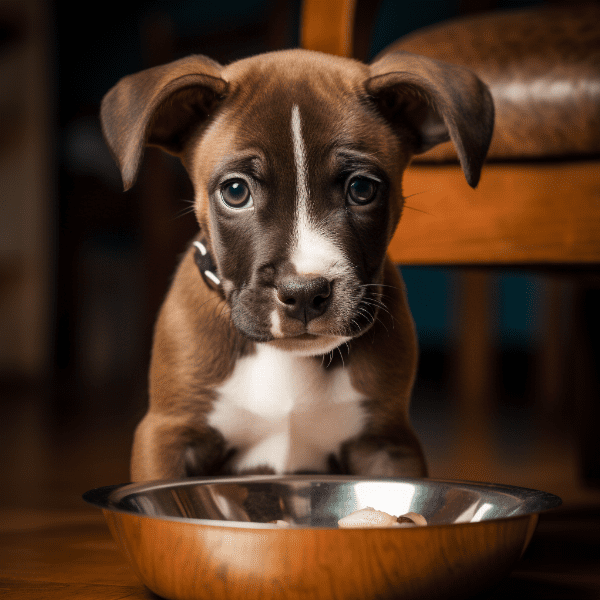
Training Techniques for Preventing Food Aggression
Preventing food aggression in puppies requires consistent training and positive reinforcement. Here are some training techniques that can help prevent food aggression in puppies:
Teach Your Puppy Basic Obedience Commands
Teaching your puppy basic obedience commands, such as “sit” and “stay,” can help prevent food aggression by establishing a clear hierarchy in your household. When your puppy understands that you are in control, they are less likely to feel the need to protect their food aggressively.
Gradually Increase Socialization
Gradually exposing your puppy to new people, animals, and environments can help prevent food aggression by reducing anxiety and insecurity. Socialization should be done in a positive and gradual manner, so as not to overwhelm your puppy and cause stress.
Feed Your Puppy in a Calm Environment
Feeding your puppy in a calm environment can help prevent food aggression by reducing stress and anxiety. Avoid feeding your puppy in a crowded or chaotic environment, as this can make them feel threatened or defensive.
Practice “Trading Up” Technique
Practicing the “trading up” technique involves trading your puppy for something of higher value than what they are currently guarding. For example, if your puppy is guarding a toy, you can trade it for a more valuable treat or toy. This technique helps your puppy learn that giving up something does not always mean losing it permanently.
.
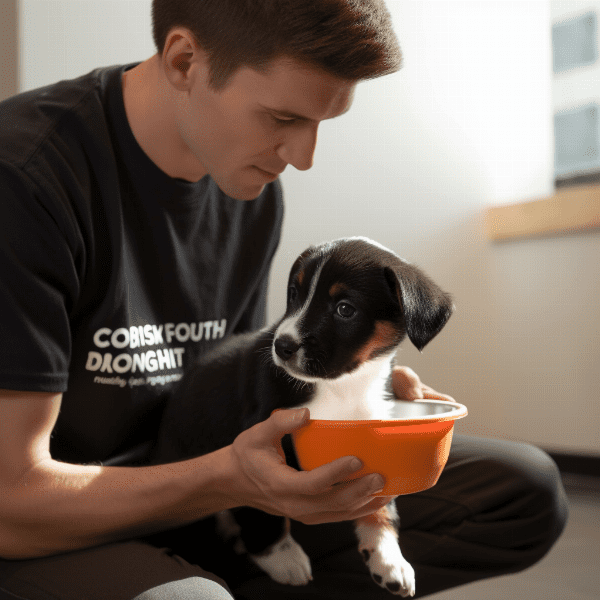
Feeding Strategies to Reduce Food-Related Tension
Feeding strategies play a crucial role in preventing food aggression in puppies. Here are some feeding strategies that can help reduce food-related tension:
Set a Feeding Schedule
Setting a feeding schedule can help prevent food aggression by establishing a routine and reducing anxiety. Puppies should be fed at the same time each day and for the same amount of time. This schedule helps prevent them from becoming overly hungry and anxious about food.
Avoid Hand Feeding
Avoiding hand feeding can help prevent food aggression by reducing the potential for puppies to associate hands with food. Instead, use feeding bowls and avoid giving treats or food directly from your hand.
Supervise Mealtimes
.
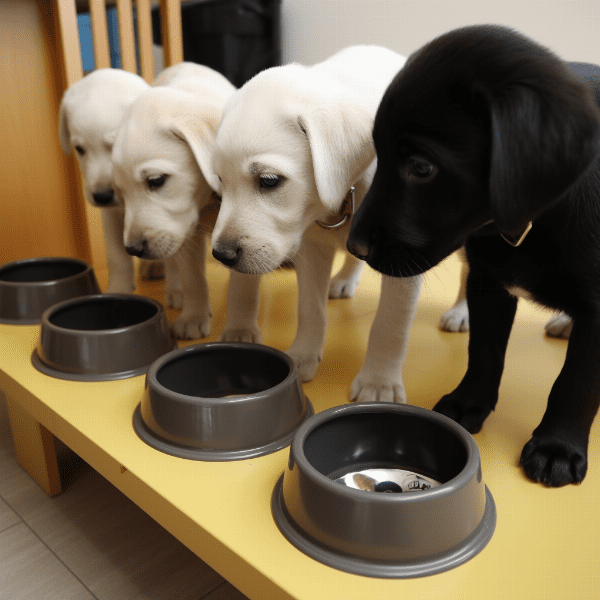
Avoiding Common Mistakes When Dealing with Food Aggression
Dealing with food aggression in puppies can be a challenging and sometimes frustrating experience. Here are some common mistakes to avoid when dealing with food aggression:
Punishing Your Puppy
Punishing your puppy for food aggression can make the problem worse by increasing their anxiety and insecurity. Punishment can also damage your relationship with your puppy, making them less likely to trust and obey you in the future.
Ignoring the Problem
Ignoring food aggression in puppies can make the problem worse by allowing it to escalate into more severe forms of aggression. It is crucial to address the issue promptly and consistently to prevent it from becoming a severe problem.
Failing to Establish a Clear Hierarchy
Failing to establish a clear hierarchy in your household can make food aggression worse by allowing puppies to feel like they are in control. Establishing a clear hierarchy helps prevent puppies from feeling the need to protect their food aggressively.
Allowing Your Puppy to Free Feed
Allowing your puppy to free feed, or eat whenever they want, can make food aggression worse by increasing competition for resources. Setting a feeding schedule helps prevent anxiety and competition around food.
Neglecting Socialization
Neglecting socialization can make food aggression worse by increasing anxiety and insecurity. Puppies should be exposed to different people, animals, and environments to prevent anxiety and aggression from developing.
Using Forceful Training Techniques
Using forceful training techniques, such as physical punishment or dominance-based training, can make food aggression worse by increasing anxiety and insecurity. Positive reinforcement techniques should be used consistently and in combination with other training techniques to be effective.
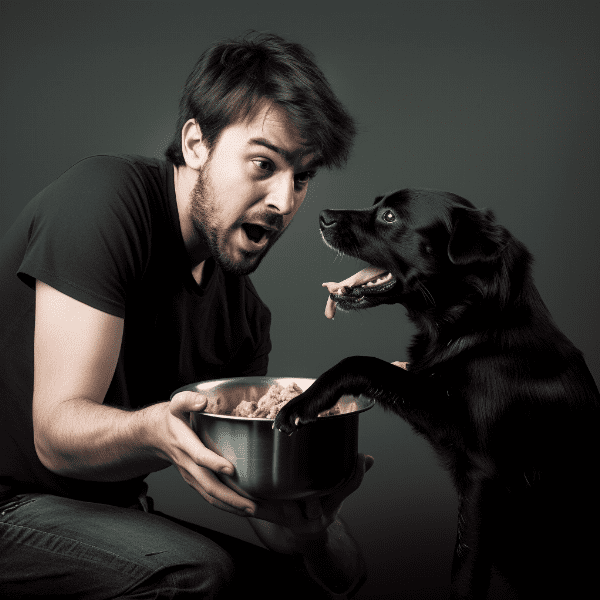
Seeking Professional Help for Serious Cases
In severe cases of food aggression in puppies, seeking professional help from a certified dog trainer or animal behaviorist may be necessary. Here are some reasons why seeking professional help may be necessary:
Dangerous Aggression
If your puppy is displaying dangerous aggression, such as biting or attacking people or other animals, seeking professional help is essential. Dangerous aggression can cause harm to others and can result in legal consequences.
Chronic Aggression
If your puppy’s food aggression is chronic and has not improved despite consistent training, seeking professional help may be necessary. Chronic aggression may indicate a more severe underlying issue that requires specialized training techniques.
Uncontrollable Anxiety
If your puppy’s food aggression is causing uncontrollable anxiety, seeking professional help is essential. Uncontrollable anxiety can impact your puppy’s quality of life and can lead to other behavioral issues.
Other Underlying Behavioral Issues
If your puppy is displaying other underlying behavioral issues, such as separation anxiety or fear aggression, seeking professional help may be necessary. These issues can exacerbate food aggression and may require specialized training techniques.
Professional dog trainers and animal behaviorists have the knowledge and experience necessary to address food aggression in puppies effectively. They can provide specialized training techniques, guidance, and support to help prevent food aggression from becoming a severe problem and promote a happy and healthy relationship with your puppy.
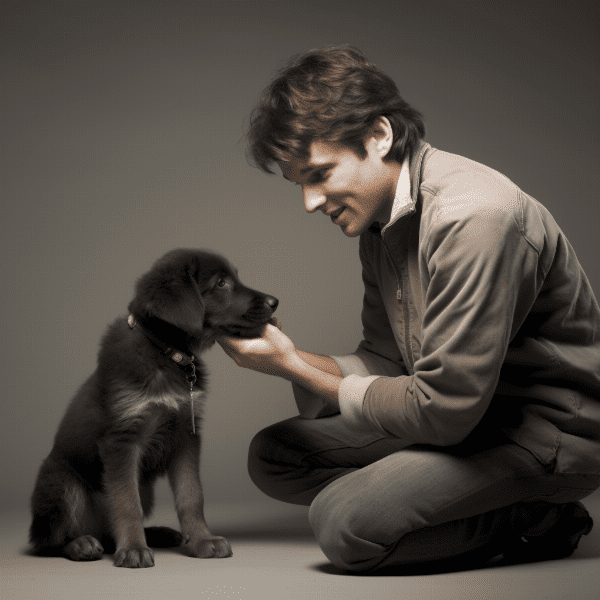
Incorporating Positive Reinforcement in Puppy Training
Incorporating positive reinforcement techniques in puppy training is essential in preventing food aggression and other behavioral issues. Here are some positive reinforcement techniques that can be used in puppy training:
Reward Good Behavior
Rewarding good behavior with treats or praise is an effective way to promote positive associations with food and other dogs or people. When your puppy displays good behavior, such as allowing you to take away their food without growling or snapping, reward them with a treat or praise.
Use Clicker Training
Clicker training is a positive reinforcement training technique that involves using a clicker to signal to your puppy that they have done something correctly. When your puppy displays good behavior, click the clicker and reward them with a treat or praise.
Establish a Treat Jar
Establishing a treat jar is a positive reinforcement technique that involves keeping a jar of treats in a visible location in your home. When your puppy displays good behavior, such as sharing their food or playing nicely with other dogs, reward them with a treat from the jar.
Play Training Games
Playing training games, such as hide-and-seek or fetch, is a positive reinforcement technique that promotes positive associations with food and other dogs or people. When your puppy displays good behavior during these games, reward them with a treat or praise.
Offer Verbal Praise
Offering verbal praise, such as saying “good dog” or “well done,” is a simple yet effective way to promote positive associations with food and other dogs or people. When your puppy displays good behavior, offer verbal praise to reinforce that behavior.
Incorporating positive reinforcement techniques in puppy training can help prevent food aggression and promote a happy and healthy relationship with your puppy. These techniques should be used consistently and in combination with other training techniques to be effective.
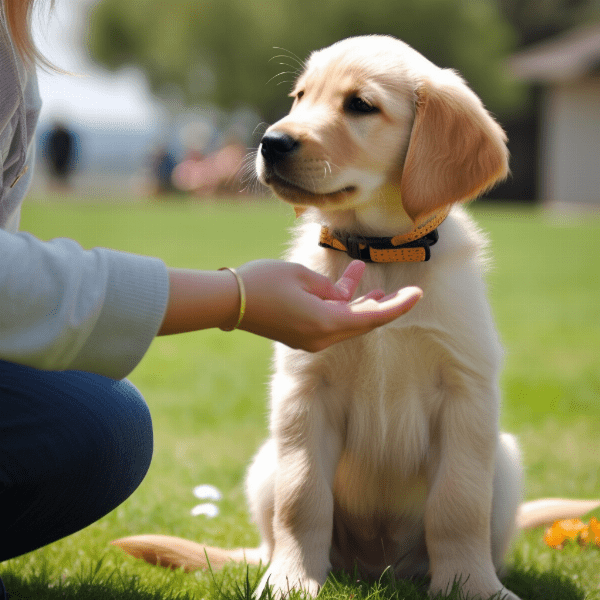
Managing Multi-Dog Households with Food Aggression
Managing food aggression in multi-dog households requires extra care and attention to ensure a peaceful and harmonious environment. Here are some tips for managing multi-dog households with food aggression:
Feed Dogs Separately
Feeding dogs separately can help prevent competition for resources and reduce food aggression. Each dog should have their feeding bowl, and the bowls should be placed far apart to avoid any potential conflict.
Establish a Feeding Schedule
Establishing a feeding schedule can help prevent food aggression by reducing anxiety and competition around food. Each dog should be fed at the same time each day and for the same amount of time to prevent anxiety and competition.
Use Puzzle Feeders
Using puzzle feeders can help prevent food aggression by providing dogs with an engaging and stimulating way to eat. Puzzle feeders slow down the pace of eating, reduce anxiety, and provide mental stimulation.
Monitor Dogs During Mealtimes
Monitoring dogs during mealtimes can help prevent food aggression by allowing you to intervene and prevent conflicts from escalating. Keep an eye on your dogs during mealtimes and separate them if necessary to avoid any potential conflicts.
Encourage Sharing
Encouraging sharing can help prevent food aggression by promoting positive interactions around food. Encourage dogs to share their food or toys by offering them treats or praise for doing so.
Seek Professional Help
In severe cases of food aggression in multi-dog households, seeking professional help from a certified dog trainer or animal behaviorist may be necessary. These professionals can provide specialized training techniques and guidance to address food aggression in multi-dog households and promote a peaceful and harmonious environment.
Managing food aggression in multi-dog households requires patience, consistency, and a commitment to positive reinforcement training techniques. By implementing these tips, you can help prevent food aggression from becoming a severe problem and promote a happy and healthy relationship between your dogs.
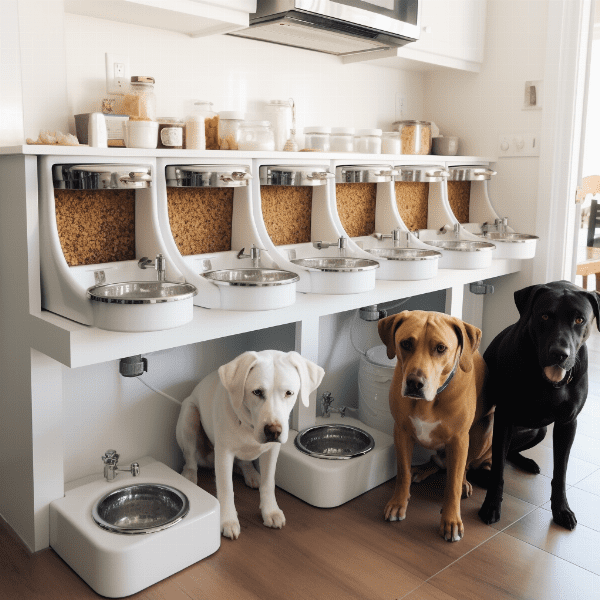
The Importance of Consistency in Preventing Food Aggression
Consistency is crucial in preventing food aggression in puppies. Here are some reasons why consistency is important and how to maintain consistency in puppy training:
Reinforces Good Behavior
Consistent positive reinforcement training reinforces good behavior and promotes positive associations with food and other dogs or people. When your puppy consistently receives positive reinforcement for good behavior, they are more likely to repeat that behavior.
Prevents Confusion
Consistency in training prevents confusion by establishing clear expectations and boundaries for your puppy. When expectations and boundaries are consistent, your puppy is less likely to become confused or anxious about their role in the household.
Builds Trust
Consistent training builds trust between you and your puppy by establishing a predictable and safe environment. When your puppy trusts you and feels secure in their environment, they are less likely to feel the need to protect their food aggressively.
Maintaining Consistency
Maintaining consistency in puppy training requires a commitment to positive reinforcement techniques and establishing clear expectations and boundaries. Here are some tips for maintaining consistency:
- Use the same feeding schedule and location for your puppy every day
- Use the same training techniques consistently and in combination with other training techniques
- Establish clear boundaries and expectations for your puppy and enforce them consistently
- Be patient and persistent in training, and avoid becoming frustrated or angry with your puppy
- Reward good behavior consistently with treats or praise
Consistency is essential in preventing food aggression in puppies. By maintaining consistency in training and reinforcing good behavior consistently, you can promote a happy and healthy relationship with your puppy and prevent food aggression from becoming a severe problem.
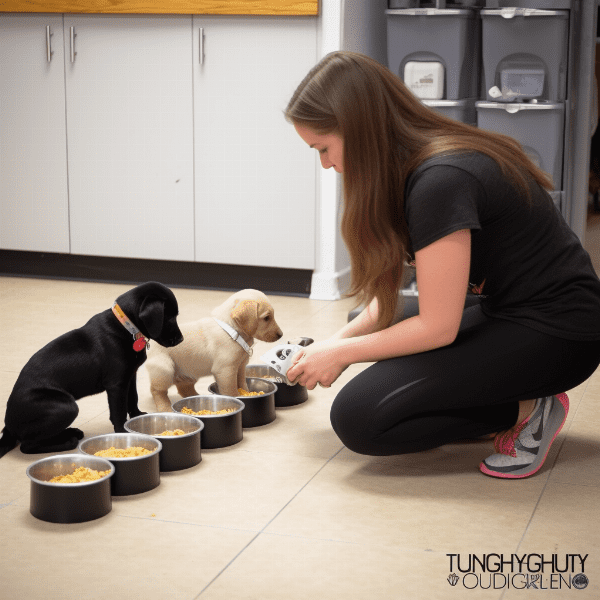
Building Trust with Your Puppy to Overcome Food-Related Anxiety.
Building trust with your puppy is essential in overcoming food-related anxiety and preventing food aggression. Here are some tips for building trust with your puppy:
Use Positive Reinforcement Techniques
Positive reinforcement techniques, such as using treats or praise to reward good behavior, are effective in building trust with your puppy. When your puppy displays good behavior around food, reward them with a treat or praise to reinforce that behavior and promote positive associations with food.
Establish Clear Boundaries
Establishing clear boundaries with your puppy is essential in building trust and preventing food aggression. Your puppy should know what is expected of them during mealtimes and what behaviors are unacceptable. Enforce these boundaries consistently to promote trust and prevent confusion.
Avoid Punishment
Avoid punishing your puppy for food-related anxiety or aggression. Punishment can damage your relationship with your puppy and make them less likely to trust and obey you. Instead, use positive reinforcement techniques and consistent training to promote trust and reinforce good behavior.
Provide a Safe and Comfortable Environment
Providing a safe and comfortable environment for your puppy is essential in building trust and reducing anxiety. Make sure your puppy has a comfortable and safe space to eat and avoid any potential triggers that may cause anxiety or aggression.
Be Patient and Consistent
Building trust with your puppy takes time and requires patience and consistency. Be patient with your puppy as they learn and grow, and be consistent in your training and reinforcement techniques to promote trust and prevent confusion.
By building trust with your puppy through positive reinforcement techniques, clear boundaries, a safe environment, and patience, you can overcome food-related anxiety and prevent food aggression. Building trust is essential in promoting a happy and healthy relationship with your puppy and preventing behavioral issues from becoming severe problems.


